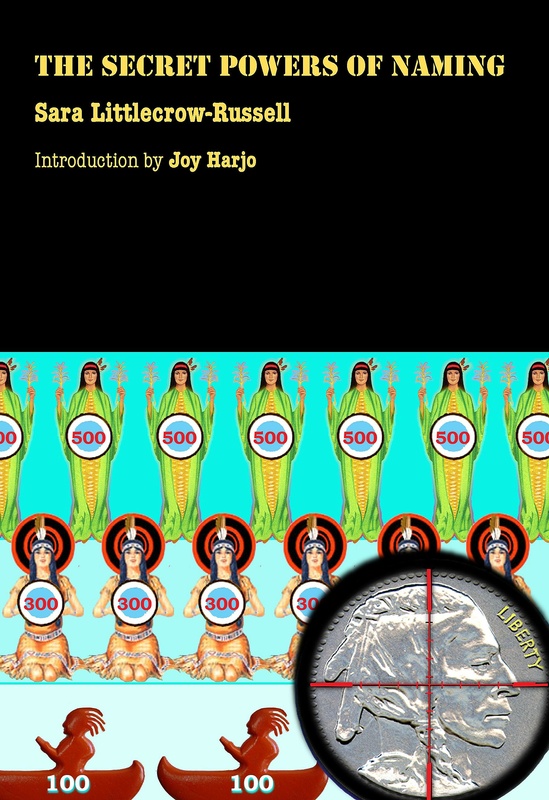The Secret Powers of Naming
By Sara Littlecrow-Russell; Introduction by Joy Harjo
SERIES:
The University of Arizona Press
Sara Littlecrow-Russell’s style emerges from the ancient and sacred tradition of storytelling, where legends were told not just to entertain, but to teach and, if necessary, to discipline. The power of the storyteller is the power of naming, to establish a relationship, a connection, and a sense of meaning. A name is both a bequest and a burden. Each of the poems in this collection is, in essence, a naming ritual. Sharply, energetically, and always provocatively, these poems name uncomfortable moments, complex emotions, and sudden, often wryly humorous realizations.
As Littlecrow-Russell explores how names imposed by outsiders both collide and merge with the identities that Natives create for themselves, these poems decisively counter the images of Indians as colorful dancers, stoic saints, and defeated warriors. These verses are not constructed of beautiful images, nor are they stories of redemption. Instead, Littlecrow-Russell offers stark and honest witness to urban and reservation life at the beginning of the twenty-first century. In short snaps of honed lyric and voice, she tackles topics ranging from family, love, and spirituality, to welfare, addiction, and the thorny politics of tribal identity. Her work displays tremendous bitterness and anger, but there is also dignity, humor, and plenty of irony.
Candid and compelling, this collection brings fluent verse and human face to the commonly misrepresented experiences of Native Americans.
As Littlecrow-Russell explores how names imposed by outsiders both collide and merge with the identities that Natives create for themselves, these poems decisively counter the images of Indians as colorful dancers, stoic saints, and defeated warriors. These verses are not constructed of beautiful images, nor are they stories of redemption. Instead, Littlecrow-Russell offers stark and honest witness to urban and reservation life at the beginning of the twenty-first century. In short snaps of honed lyric and voice, she tackles topics ranging from family, love, and spirituality, to welfare, addiction, and the thorny politics of tribal identity. Her work displays tremendous bitterness and anger, but there is also dignity, humor, and plenty of irony.
Candid and compelling, this collection brings fluent verse and human face to the commonly misrepresented experiences of Native Americans.
Intense and evocative, Littlecrow-Russell’s poems offer much food for thought.' —Booklist
Sara Littlecrow-Russell works with Community Partnerships for Social Change at Hampshire College and runs a small law and mediation practice in western Massachusetts.





